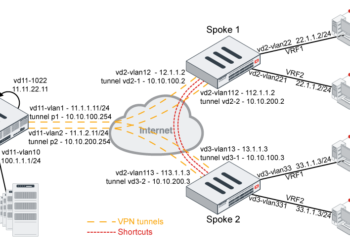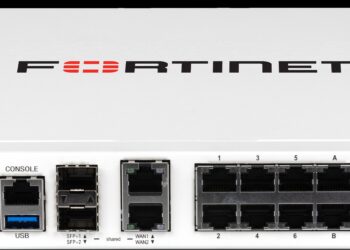Cybersecurity is a dynamic field, necessitating continuous vigilance, innovative thinking, and adaptability. A particularly effective measure for organizations in this ever-evolving domain is the implementation of SSL Deep Inspection on Fortinet firewalls. This approach, especially when integrated with FortiClient, acts as a robust shield against ransomware and a variety of cyber threats.
Demystifying SSL Deep Inspection
SSL Deep Inspection, a feature of Fortinet firewalls, plays a crucial role in cybersecurity. It penetrates the veil of encrypted SSL traffic by decrypting and scrutinizing it, thereby fortifying the network against malicious attempts.
A significant portion of internet traffic is encrypted, including potentially harmful malware and ransomware. Without SSL Deep Inspection, this traffic remains opaque, akin to an unmonitored alleyway in a neighborhood.
How SSL Deep Inspection Elevates Security
SSL Deep Inspection offers several benefits:
Unmasking Encrypted Traffic
It acts like a detective with advanced capabilities, enabling visibility into encrypted network traffic and preventing threats from evading detection.
Ransomware and Malware Defense
SSL Deep Inspection effectively exposes hidden cyber threats, akin to discovering contraband concealed within ordinary objects, thereby preventing network disruption.
Ensuring Compliance and Preventing Data Leaks
This technology helps in adhering to industry regulations and acts as a safeguard to prevent the inadvertent leakage of sensitive data.
The Complementary Role of FortiClient
FortiClient enhances the efficacy of SSL Deep Inspection, much like a reliable partner enhances the capabilities of a hero.
Endpoint Protection
FortiClient offers comprehensive protection for individual devices, akin to a personal guard, by providing antivirus, intrusion prevention, and web filtering.
VPN Security
In the era of remote work, VPN security is paramount. FortiClient ensures secure data transmission for remote connections.
Zero Trust Network Access
In cybersecurity, excessive trust can be a liability. FortiClient enforces strict access controls and continuous monitoring, embodying a Zero Trust approach.
Implementing SSL Deep Inspection: Key Practices
To effectively deploy SSL Deep Inspection, consider the following:
Policy Formation
Establish clear policies for decrypting and inspecting traffic, balancing security needs with privacy considerations.
Performance Management
Ensure that your firewall hardware is capable of handling SSL inspection without degrading network performance.
User Awareness and Legal Compliance
Maintain transparency with network users about encrypted traffic inspection, adhering to privacy laws and regulations.
Consistent Updates and Management
Regularly update Fortinet and FortiClient systems with the latest security patches and threat definitions to maintain robust defenses.
Conclusion
In the battle against cyber threats, SSL Deep Inspection and FortiClient are invaluable assets. They offer deep insight into encrypted traffic and extend protection to the endpoints. However, their effectiveness hinges on strategic deployment and regular updates.
A balanced approach, incorporating both security and performance, privacy and transparency, is essential in cybersecurity. A multi-layered, comprehensive strategy remains the most effective way to stay ahead. Prepare to elevate your cybersecurity to new heights with SSL Deep Inspection and FortiClient, your stalwarts in the ongoing battle against cybercrime.




